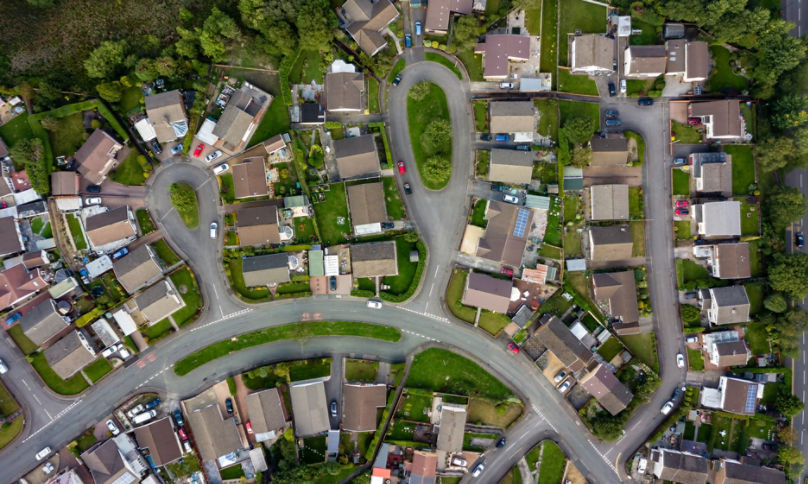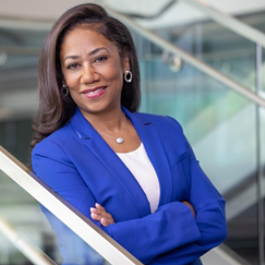
Our PeopleArticle
Sustainability in Disaster Response
October 17, 2024
Translating our desire to help into a sustainable response to natural disasters.

Our PeopleArticle
October 17, 2024
Translating our desire to help into a sustainable response to natural disasters.
When crises strike, it’s hard not to be swept up in the sheer humanity of the moment. The stories and images of people and communities impacted naturally compel us to want to help, but it can be confusing to know the right thing do -- hop in the car, collect supplies, send money? I get it. My work at Trane Technologies is to be a source of aid to our employees and communities around the world, but in the information swell that comes in the early stages of a crisis, it can be hard to make heads or tails of the facts. The moment we’re tempted to race to the rescue is precisely the time we need to take a collective deep breath and consult the advice of experts.
According to the community of experts who monitor climate and disaster trends, we are likely to see an increase in the intensity of natural disasters around the world, so, it’s prudent for us all to know how to respond to future crises, and to do so with a longer view toward sustainability.
Natural disasters, which are the most common kind of public crisis, often result in compromised infrastructure, like roads and communication, and it can be easy for partial or inaccurate information to spread. – This makes it difficult to know how to respond effectively, and even worse, sometimes compromises response efforts. There are planned phases that need to be followed for effective disaster response, and according to the U.S. Federal Emergency Management Agency (FEMA), the first of them has to include having experts like emergency responders, and aid organizations like the Red Cross, United Way and Salvation Army, be the first line of support. They are trained to process and secure unstable environments and to determine how best to allocate resources.
In the hours immediately after Hurricane Helene, authorities needed time to assess, and ready the region to receive aid. They needed to figure out which roads were passable; to rescue and relocate residents out of harm’s way; to coordinate with municipal and non-profit partners to determine their capacity; and to assess the viability of shelters and public spaces like hospitals, schools and fire departments. As well-meaning as it is, when volunteers and supplies pour into a community before a plan is in place, it can put people at risk and compromise the very resources that impacted communities desperately need.
“We are likely to see an increase in the intensity of natural disasters around the world, so it’s prudent for us all to know how to respond to future crises, and to do so with a longer view toward sustainability."

Recently, as Hurricanes Helene and Milton were hitting the U.S., and in the Czech Republic, as Storm Boris overtook rural communities, Trane Technologies emergency management teams activated a sophisticated system that works alongside local authorities, to help account for and support our impacted employees with urgent needs like temporary housing, transportation, fuel, water and emergency relief funds. We did that for hundreds upon hundreds of employees. We are truly grateful to report that all of our teams are safe and accounted for. But we know there is a long road ahead, and financial support is much needed. For anyone wanting to help in a disaster, philanthropic support is a great way to be of assistance, and there are a number of options.
Trane Technologies has closely monitored the ongoing relief efforts. In the U.S., we’ve directed more than $500,000 of aid across the regions impacted by Hurricane Helene, including in Georgia where one of our manufacturing plants employs more than a thousand people. We are donating another $100,000 to a special relief fund erected by the Foundation for the Carolinas, specifically for the Western North Carolina region. We are donating $100,000 to the International Red Cross for victims of Storm Boris, and we are matching employee donations dollar for dollar to our Helping Hand global employee crisis relief fund, which makes grants of up to $2,500 available to impacted employees around the world. In addition to our institutional giving, in true Trane Technologies fashion, our employees around the world are leading drives, delivering fuel, housing colleagues, holding fundraisers, and going above and beyond in ways that are absolutely beautiful.
After the urgency of the initial crisis settles, these communities need to shift from relief to recovery. And as a company that is committed to leading the way to a more sustainable future, the focus of our disaster support has shifted there, too. As with all that we do, we are looking down the road at the long term. We know that smart solutions require each region to take a purposeful pause to consider not just what was lost, but what they will need in order to thrive in the face of the realities they face today.
We want to help these communities rebuild in ways that consider the environment, economy and society. That may mean moving a bit slower, borrowing strategies and resources from other regions, and taking care to ensure that the voices of the more vulnerable and disengaged constituents are heard. But it will be worth it if we can look back in years to come and proudly say that not only did we survive these events, but we also worked together to create communities that are healthier, more resilient and more inclusive for generations to come.
Recommended for you
Our People Article
Experienced Engineer Uplifts Next Generation, Embraces InnovationJanuary 27, 2025
Principal Electrification Engineer Matt Srnec is thriving at Thermo King® where he passionately drives electrification for the company and the industry while uplifting the next generation of engineers.
Our People Video
How Alessandra Hammond Makes Our Supply Chain More SustainableNovember 18, 2024
We believe every job at Trane Technologies can be a sustainability job. Learn how Alessandra Hammond builds systems and processes to advance sustainability goals.
Our People Video
Organic Growth: The Carolina Farm Trust and Trane TechnologiesNovember 08, 2024
The Carolina Farm Trust increases access to locally grown produce and drives growth in the regional food economy.
Our People Article
How Emma Van Fossen Helps Make Buildings GreenerOctober 09, 2024
We believe every job at Trane Technologies can be a sustainability job. Learn how Emma reduces the emissions of buildings through her work as an energy engineering team lead.